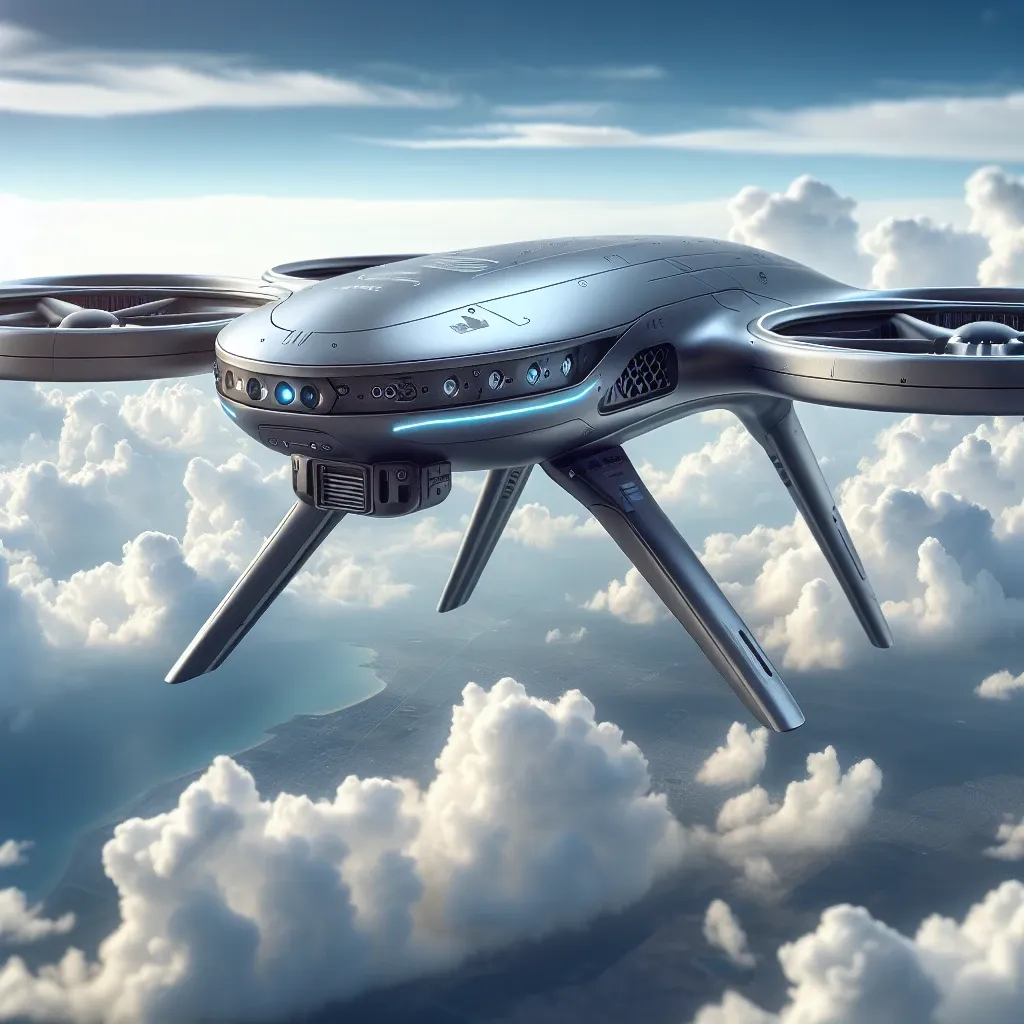Boeing’s Groundbreaking Hydrogen-Powered Drone
In a significant leap toward sustainable aviation technology, Boeing has recently unveiled a hydrogen-powered drone designed specifically for defense applications. This innovative drone not only showcases the company’s commitment to green energy but also represents a pivotal shift in how military operations may be conducted in the future.
The Significance of Hydrogen Power
Hydrogen fuel cells have emerged as a game-changer in the aviation industry. By utilizing hydrogen as a primary energy source, Boeing’s drone aims to reduce harmful emissions and the carbon footprint associated with traditional aviation fuels. Hydrogen power is not only clean but also efficient, providing a longer range and quicker refueling times compared to conventional battery-powered systems.
Historical Context
The concept of using hydrogen as a fuel source is not new; however, its application in aviation has been limited until recently. Historically, the aviation industry has relied heavily on fossil fuels, contributing to significant environmental impacts. In the past decade, various companies have explored alternative fuel options, with hydrogen gaining traction due to its potential to revolutionize air travel.
Technical Overview of the Drone
Boeing’s hydrogen-powered drone is equipped with advanced technology that enhances its operational capabilities. The drone features:
- Hydrogen Fuel Cell System: This system converts hydrogen into electricity, powering the drone’s propulsion system efficiently.
- Lightweight Materials: The use of advanced lightweight materials ensures optimal performance while maximizing payload capacity.
- Autonomous Navigation: The drone is designed with cutting-edge navigation systems, allowing for autonomous flight and real-time data collection.
Potential Defense Applications
The applications for Boeing’s hydrogen-powered drone in defense are vast and varied:
- Surveillance: The drone can be deployed for reconnaissance missions, providing real-time intelligence without the need for a human pilot.
- Logistics and Supply Chain: Its extended range can facilitate delivery of supplies to remote or inaccessible locations, making it ideal for military logistics.
- Combat Support: With the ability to remain airborne for extended periods, the drone can provide aerial support in combat scenarios.
Advantages of Hydrogen-Powered Drones
Hydrogen-powered drones bring numerous advantages to the field:
- Environmental Benefits: They produce zero emissions, significantly reducing the ecological impact associated with military operations.
- Operational Efficiency: The quick refueling process allows for efficient turnaround times, enhancing mission readiness.
- Extended Range: Hydrogen fuel cells offer a longer operational range compared to traditional battery systems, enabling prolonged missions.
Challenges Ahead
Despite the promising outlook, the integration of hydrogen-powered drones into defense operations is not without challenges:
- Infrastructure Needs: Significant investment in refueling infrastructure will be necessary to support widespread adoption of hydrogen technology.
- Public Perception: As with any new technology, there may be resistance or skepticism regarding the safety and reliability of hydrogen-powered systems.
- Regulatory Hurdles: Navigating the regulatory landscape for military aviation will require careful consideration and collaboration with government entities.
Future Predictions
Looking ahead, the potential for hydrogen-powered drones in defense applications is vast. As technology advances, we can expect:
- Increased Research and Development: Continued investment in R&D will lead to breakthroughs that enhance the efficiency and capabilities of hydrogen drones.
- Broader Military Adoption: As the advantages become more apparent, we may see an increasing number of military organizations integrating this technology into their operations.
- Partnerships and Collaborations: Collaborations between defense contractors and environmental organizations could foster innovation, making hydrogen-powered systems more accessible.
Expert Insights
Industry experts predict that hydrogen technology will play a crucial role in the future of military aviation. According to Dr. Emily Chan, a leading researcher in sustainable aviation, “The adoption of hydrogen fuel cells in defense applications is not only a step toward sustainability but also a strategic advantage, offering enhanced operational capabilities.”
Real-World Applications
While Boeing’s hydrogen-powered drone is still in its demonstration phase, other companies are exploring similar technologies. For instance, the recent tests conducted by various aerospace firms illustrate a growing interest in practical applications of hydrogen in aviation. These tests have demonstrated the viability and safety of hydrogen systems in real-world scenarios.
Cultural Relevance
The shift toward hydrogen-powered aviation resonates with broader cultural movements advocating for environmental sustainability. As global awareness of climate change intensifies, industries are being pushed to innovate and adopt cleaner technologies. The defense industry, traditionally viewed as a significant contributor to pollution, is now positioned to become a leader in sustainable practices.
Conclusion
Boeing’s demonstration of a hydrogen-powered drone signifies a pivotal moment for both the aviation and defense sectors. With its potential to reduce environmental impact while enhancing operational efficiency, this technology could redefine how military operations are conducted in the future. As the world moves toward more sustainable solutions, the importance of innovations like Boeing’s hydrogen-powered drone cannot be overstated. The implications for defense applications are profound, and the future looks promising for this cutting-edge technology.

